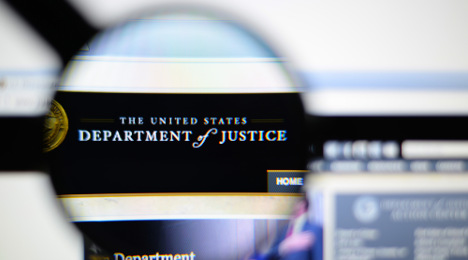DOJ sues Michigan credit union for illegally repossessing servicemembers’ vehicles

By subscribing, you agree to receive communications from Auto Remarketing and our partners in accordance with our Privacy Policy. We may share your information with select partners and sponsors who may contact you about their products and services. You may unsubscribe at any time.
WASHINGTON, D.C. –
The Justice Department filed a lawsuit this week in the Eastern District of Michigan to recover damages from the COPOCO Community Credit Union, alleging that the institution violated the Servicemembers Civil Relief Act (SCRA) by repossessing protected servicemembers’ vehicles without obtaining the necessary court orders.
The SCRA protects the rights of servicemembers on active duty by suspending or modifying certain civil obligations. The law prohibits repossessing a vehicle from a servicemember during military service without a court order if the individual made a deposit or installment payment on the loan before entering military service.
The Justice Department’s complaint alleges that COPOCO’s vehicle repossession procedures did not include any process to determine customers’ military status — such as checking the Department of Defense’s database — prior to conducting repossessions without court orders.
The complaint also alleges that COPOCO illegally repossessed U.S. Army Private First Class Christian Carriveau’s vehicle, along with his 2-year-old daughter’s car seat, from his driveway in Lacey, Wash., near Joint Base Lewis-McChord. His wife, Alyssa Carriveau, initially believed that the vehicle had been stolen, but she subsequently learned that it had been repossessed.
Private First Class Carriveau was away at military training at the time and Alyssa Carriveau was not able to get to work without the vehicle.
In addition to monetary damages for affected servicemembers, the SCRA provides for civil monetary penalties of up to $60,000 for the first offense and $120,000 for each subsequent offense. The department will also seek changes in how COPOCO conducts future repossessions.
Subscribe to Auto Remarketing to stay informed and stay ahead.
By subscribing, you agree to receive communications from Auto Remarketing and our partners in accordance with our Privacy Policy. We may share your information with select partners and sponsors who may contact you about their products and services. You may unsubscribe at any time.
COPOCO Community Credit Union is based in Bay City, Mich.
“No servicemember should be penalized for honorably serving our country,” said principal deputy associate attorney general Bill Baer. “COPOCO Community Credit Union’s alleged misconduct in repossessing vehicles without the required court order is both wrong and illegal.
“The Justice Department continues to ensure that we are doing all we can to protect and assist servicemembers, veterans and their families from unlawful conduct by creditors,” Baer continued.
The SCRA protects servicemembers against certain civil proceedings that could affect their legal rights while they are in military service. It requires a court to review and approve any repossession if the servicemember took out the loan and made a payment before entering military service.
The court may delay the repossession or require the finance company to refund prior payments before repossessing. The court may also appoint an attorney to represent the servicemember, require the finance company to post a bond with the court and issue any other orders it deems necessary to protect the servicemember.
By failing to obtain court orders before repossessing vehicles owned by protected servicemembers, DOJ officials indicated COPOCO prevented court review of whether such repossessions should be delayed or adjusted in light of military service.
“The Justice Department works tirelessly to protect the rights of those who answer our nation’s call to duty to defend our freedom,” said principal deputy assistant attorney general Vanita Gupta, head of the Justice Department’s Civil Rights Division.
“We will continue to vigorously pursue lenders who fail to take the simple steps necessary to determine, before repossessing a car, whether it belongs to a servicemember,” Gupta continued.
U.S. attorney Barbara McQuade of the Eastern District of Michigan added, “This law was designed to ease the legal and financial burdens for servicemembers and their families when facing the demands of active duty.
“We owe it to all servicemembers to vigorously enforce these laws to protect them while they are serving their country,” McQuade went on to say.


